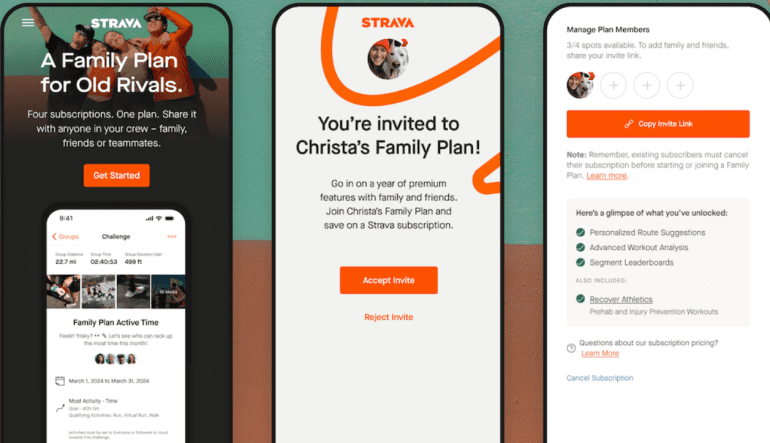- Strava enhances user experience by leveraging AI to combat cheating on leaderboards.
- New features include automated detection and removal of suspicious activities.
- Premium subscribers gain access to “athlete intelligence,” offering personalized performance insights through AI.
- Dark mode, a highly requested feature, will be introduced, catering to user preferences.
- A “family plan” subscription option extends discounts to groups of up to four users, regardless of familial ties.
Main AI News:
Strava has revealed a range of new features and updates during its annual Camp Strava event, highlighting the company’s commitment to enhancing its social fitness app for both free and premium users, with a focus on leveraging artificial intelligence (AI).
One common issue within the Strava community is the occurrence of users cheating to achieve top positions on leaderboards. Leaderboards are integral to Strava, encouraging competition by enabling users to challenge each other on predefined routes known as “segments.” Cheating may involve using a motorbike or e-bike instead of a pedal bike to set records.
To address this, Strava has already implemented mechanisms for users to flag suspicious activities manually. Last year, the company upgraded its algorithms to improve leaderboard credibility by filtering out activities that were incorrectly labeled or affected by faulty GPS data.
Now, Strava is enhancing its efforts by employing advanced machine learning to automatically detect and remove questionable activities uploaded to the platform. By training its algorithms on millions of historical activities, Strava aims to better identify normal activity patterns.
This move comes as a response to one of the most-requested features from the Strava community, demonstrating the company’s commitment to maintaining fair competition.
Matt Salazar, Chief Product Officer at Strava, described the initiative as a “step-change” in the application of AI and machine learning technologies to address gaps in the system. He emphasized that Strava is continuously exploring different technologies to enhance user experience.
In addition to this, Strava has announced the private beta launch of “athlete intelligence,” a feature exclusive to premium subscribers. This feature utilizes generative AI to analyze user data and offer insights and guidance on performance and fitness goals.
Strava is also introducing a highly anticipated dark mode, a feature ranked second in user demand according to the Strava Community Hub. This update, scheduled for release later this summer, will be available to both free and premium users, offering the option to enable dark mode permanently or based on device settings.
Furthermore, Strava is introducing a “family plan” aimed at encouraging group subscriptions through discounted rates for up to four users. Despite the name, the plan does not require members to be actual family or reside at the same address, allowing users to include friends, running crews, or teammates.
While these initiatives aim to strengthen Strava’s value proposition, the company faces challenges, including recent leadership changes and criticism over pricing transparency. However, by prioritizing social engagement and introducing innovative features, Strava continues to differentiate itself in the competitive fitness tracking market.
Conclusion:
Strava’s strategic advancements, including AI-driven integrity measures, personalized performance insights, and sought-after features like dark mode and family plans, position the platform as a frontrunner in the competitive fitness tech market. These enhancements underscore Strava’s commitment to user engagement and retention, setting a precedent for innovation in the industry.

